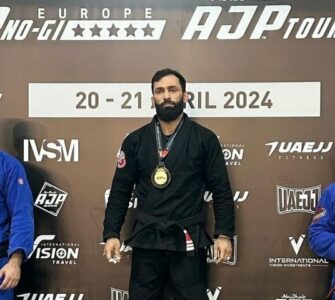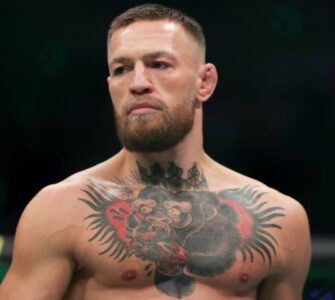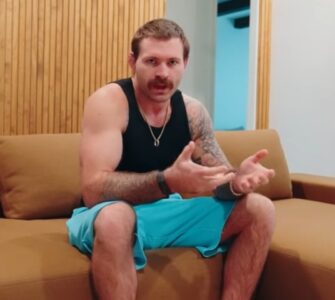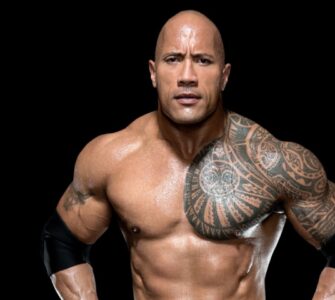Guest post by Vi, a Cambodian blue belt under Axis Jiu-Jitsu in Tokyo, Japan. Vi travels once a year to his home academy where he trains under Takamasa Watanabe, a Rickson Gracie Black Belt. He is currently pioneering Jiu-Jitsu in his home country of Cambodia, where he instructs at BJJ Cambodia and is spearheading the development of Jiu-Jitsu. Vi aims to make this gentle art accessible and affordable to all Cambodians, ensuring that Jiu-Jitsu grows.
I’ve seen and read countless of stories about people’s Jiu-Jitsu journey, whether as competitors or just as an everyday person. These stories are beautiful in their own regards and some hold more weight than others. While I respect these stories, I’ve never been able to completely relate, primarily due to the fact that Jiu-Jitsu has become something more than just a lifestyle. Today, Jiu-Jitsu is my passion. I live it and breathe it everyday, 7 days a week. But not for the reasons you may think. I truly believe that Jiu-Jitsu can change lives and that it can bring good things to you, on and off the mats. Because of my beliefs I’ve decided to push myself to excel past my own limits and began teaching in August of 2015, just 7 months after having started to train Jiu-Jitsu and earning my blue belt. I started teaching because of my passion for it and because I wanted to commit myself to helping this art develop in Cambodia, where I now live and which has always been my home.
I’d like to share the struggles of taking on something bigger than yourself and sharing it with people. Everyday, as I teach, I experience some of the most amazing moments of my life. However these moments are not without their cost. Everyday I face different ups and downs, disappointment, joy, pressure and relief. I have to put myself into question. My life goals. My passion. My moral courage. All of it.
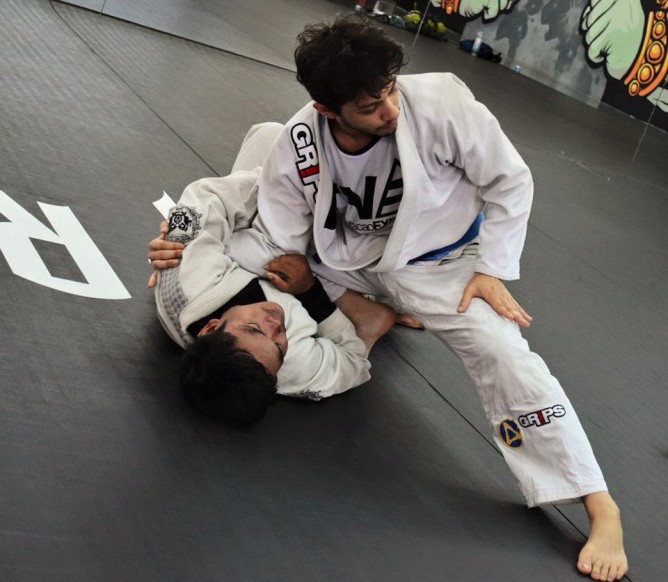
The instructor Vivaddhana Khaou aka Vi
Humble Beginnings –
I was never a fan of the Ultimate Fighting Championship (UFC), nor am I a fan of it today. Jiu-Jitsu was never ‘cool’ to me. It wasn’t a sport/martial art I saw on TV and suddenly had an epiphany. Yet, today I find myself practicing the art and teaching it. So how did I get into Jiu-Jitsu?
The point of attraction of Jiu-Jitsu, for me, revolved around the friendships you could forge – the bonds you re-enforced. Those that train were different and there was a certain harmony to their interactions. They bonded at a level, which I had never known about, and they had a demeanour that drew you in like a moth to a light. At the time, I was living in Japan on an academic exchange and I had made my way into a group of Brazilians that all teach and train Jiu Jitsu. Hanging out with them was wild. You were never bored and they always stuck together, looked out for one another. Growing up, my friends were my family, so I quickly connected to this lifestyle they were living. It was through them that I took my first and second class, just before having to leave Japan to pursue my Master’s degree.
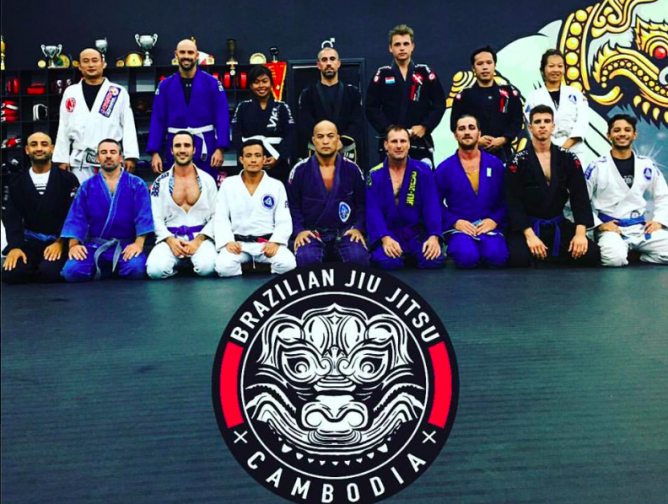
I remember my first class. Just like I remember having fun with every single one of the guys that would train with me and then later on take me out for drinks. The feeling of belonging to a family ran deep and I felt deeply connected to this group of diverse people. Alas, it was time to leave and off I went. In May 2015, I would come back to have my first class with them in 6 years, and then again in August 2015. The whole experience was surreal and a personal dream come true. I was promoted and truly became a part of this family I had met in 2009.
I had set an image in my head of what Jiu-Jitsu was and what it was to me. I decided to go continue Jiu-Jitsu while doing my Master’s. I was lucky enough that the art was slowly gaining a foothold in France and found an academy I was willing to go check out. I had my kimono and I was excited to meet everyone. For my first training session, we were numerous and we had gone through some good techniques, however it stopped there. No one was rude, no one targeted me and tried to hurt me during our rolls, just like no one really tried talking to each other. I didn’t feel the harmony or the camaraderie I had once experienced. I continued going for a week or so, until I realised I just didn’t enjoy Jiu-Jitsu. Again, it wasn’t about the cool lifestyle or the cool techniques. So I stopped. This was over 6 years ago.
As you’ve probably already gathered thus far, I now teach Jiu-Jitsu full-time, to an amazing group of individuals that goes by the name of BJJ Cambodia, which is Cambodia’s only Jiu-Jitsu group (**but not the first – see side note). Since earning my blue belt some months ago, I slowly started spearheading our Jiu-Jitsu programme. Teaching every class and adding new classes, whether competition training or all-women’s self-defense classes. I voluntarily took the initiative to do all of this. Why? Simply because I could and can – because I have the opportunity to help Jiu-Jitsu grow in Cambodia and use it to impact lives the same way Jiu-Jitsu impacted my life. Along the way, I also found a passion for teaching.
**A while back I invited Prof. Chris Haueter, one of the original American black belts, to come give a seminar in Cambodia while he was touring Southeast Asia. Through our email exchanges, Chris introduced me to Peter who has a deep connection with Cambodia. Peter has been training Jiu-Jitsu since the 90s with legends like Rickson Gracie, Renzo Gracie and John Danaher. After talking at length with Peter, it felt like I had landed on a gold mine. Peter actually introduced Jiu-Jitsu in the 90s to Cambodia, teaching local forces and foreign forces while he was working there doing some work on the Khmer Rouge and bringing them to face justice. Peter sent me photos and shared incredible stories. So Jiu-Jitsu was being taught in Cambodia, of all places, before the world even knew who Rickson Gracie was. How incredible is that? To be part of that lineage, in some way, and picking up the torch is incredible. If you can, check out his book Facing Death in Cambodia.
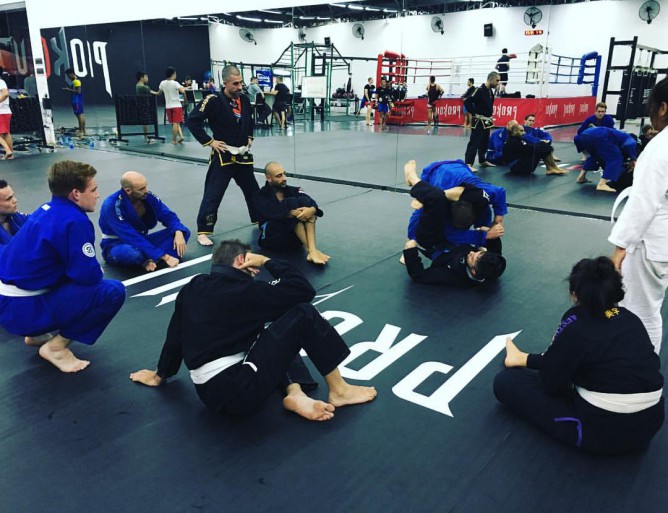
The Question –
One of the questions that I am continuously asking myself and always fail to find an answer to is: What qualifies me to teach? It’s not like I am the highest ranked in the group – currently there are two purple belts in our group, but they are only able to commit as much time as work and family allows them to. I still don’t know what qualifies me to teach, but I know I love teaching the little bit of Jiu-Jitsu I know to those that seek it. In the beginning, I was all about teaching, without really considering how to sustain this for the long term. Teaching Jiu-Jitsu as a blue belt has been difficult because it requires you to find a balance between helping others grow and helping yourself grow. I always find myself prioritising everyone else around me over my own growth. During my training sessions, I would walk around, from pair to pair, and make sure the small details to whatever technique I had shown, were not being overlooked. When the time came to start sparring I would gladly jump in with anyone who didn’t have a partner, but if we were an uneven number, I would be the first to sit out and let whoever else get some mat time and improve themselves. It seemed selfish to tell someone to sit out for a round and let myself go in for a roll. Over time I felt something heavy lingering over me. I began questioning my ability to teach – how can I teach if I don’t get better? What qualifies me to teach now when I’m not really improving?
I reached out to J.P., my friend and teacher, and I approached him with my concerns. He spoke at length about the importance of finding a balance in teaching and training – about needing to find time for myself. He was right. How could I ever be qualified if I didn’t continuously make an effort to improve my own game so that others could benefit from it whether in sparring or when I am breaking down a technique? I focused on the fact that I wasn’t as good as the others whom I competed against and lost to, or as the higher-ranking belts in our group. It was then that J.P. told me that a great competitor does not make for a great teacher. Being a great teacher takes more than winning world titles or getting gold at competitions. Sure, it helps. But it takes selflessness, dedication to others and a care for your peers and students that goes beyond the mats.
J.P. is actually a mentor figure to me. He is the person I look up to as a friend and more specifically as a teacher. His attention to details, his patience and his dedication to his students are beyond amazing. Almost every night, he will teach his class in 2 or 3 languages – starting in Japanese, then going to English and finally Portuguese – so everyone in class could keep up. I don’t want to be like J.P., I strive to be even better than him (an indication of how I hold him in high regards and how much respect I have for him). In order to do that, I’ve got to continue to ask myself all the questions possible, whether they are the wrong ones or the right ones. Without asking these questions I’ll never find the answer I’m searching for.
My training is an important part of me becoming sharper, more diverse and more aware – to my personal development. It’s been easy to get the feeling that I am just not improving and thereby not suited to lead or teach this amazing group of individuals. But I’m constantly reminded that I’ve got to rely on these amazing individuals to help me get better. The more I can push them to be better and really tweak their respective games and techniques, the stronger and better they get. In turn, this pushes me to be better because they can continuously push my game and challenge me. I’m aware of this and I am grateful for the respect and mutual help we provide one another. We are truly a family. However, it’s not always easy to feel this way. I focus heavily on the fact that I need to improve, to really help get them at a level where they can compete with the top academies in the world. I trust each and every one of them that train with me and believe in their abilities. It’s myself I don’t trust. I don’t trust myself to be moving fast enough to make sure they always have someone who can help them and lead them the right direction. They would all benefit from having a black belt or at least a brown belt committed to teaching, however that is not the case and we must do with what we have. I also see this as an opportunity for me to make something of myself with the help of everyone at BJJ Cambodia. I see it as an opportunity to pioneer this gentle art in my home country of Cambodia.
Some of you reading may feel like you have an answer or part of the answer to my questions, but we need to remember that we all have different thought processes and respond to certain situations in different ways. Some of you may also have an opinion to these questions I ask myself. The fact that I ask these questions shows I’m not perfect, but that I’m taking the steps to improve and learn. It’s not about how big your step forward is, it’s about taking that step forward.



